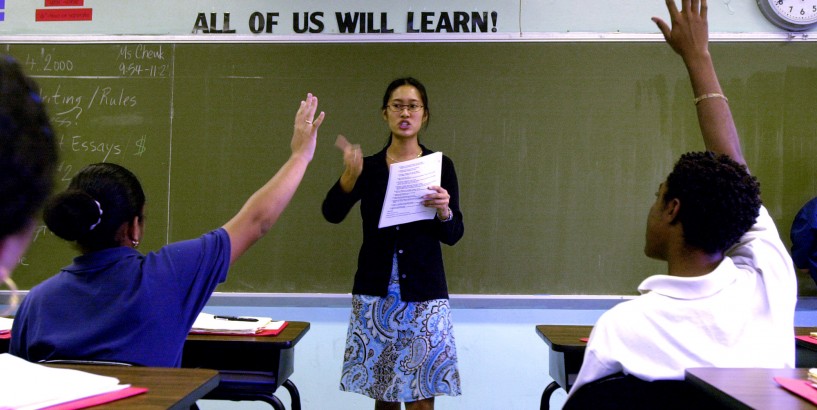They’re planning to smother the evaluations and, chances are, they’ll succeed. With that, state education officials and the members of the Senate and Assembly will take away one of the most useful tools for improving the fortunes of New York’s underserved students.
The dispute here is the linkage between students’ tests and teacher evaluations, which is of obvious value to taxpayers, parents and students but which teachers unions and their puppets in state government cannot abide. To put it out of their misery, members of the State Board of Regents have proposed to delay by at least one year any effort to tie teacher evaluations to the performance of students they are paid to educate. That delay is the likely equivalent of smothering accountability.
Absent the New York State Board of Regents’ action, tests and evaluations were to be linked at the start of the next school year. With the delay, any decision will be influenced by the new State Legislature, which will, for the first time in decades, be dominated by Democrats, the trained pets of the teachers unions. Say goodbye to that form of accountability.
Certainly, a connection between tests and evaluations would have to be carefully constructed. Are the tests fair and accurate? In what way and for how much should they count toward teacher evaluations? Such questions are important and would have needed thoughtful consideration.
They never got it. As the Board of Regents, itself, burrowed into the unions’ embrace, it lost interest in much of anything that might displease its darling. It didn’t matter that New York students are being cheated on a grand scale, that taxpayers have to dig deep into their pockets to fund some of the nation’s highest per-pupil education costs or that credible evaluations are a necessary part of measuring and then improving the quality of education in New York.
Student tests are an essential — indeed, unavoidable — component of that measurement. How else do teachers and schools know how well their students are learning? Without a baseline measurement, how do schools and districts compare themselves to peers that are doing better than they? How do they know if they have improved if they don’t know where they began?
Buffalo Teachers Federation President Philip Rumore put the lie to the unions’ objections when he claimed the tests are fundamentally flawed. That may or may not be true — we’re doubtful — but the fact is that what is flawed can be fixed. How the tests are used in evaluating teachers can be negotiated. These are solvable problems for anyone interested in solving them.
That’s not the teachers unions. Their problem isn’t in flaws, it’s simple, intractable opposition.
What they want is for taxpayers to pay through the nose for education without providing much in the way of accountability on their part. Parents and taxpayers might more willingly shoulder those costs if they knew the money was being spent wisely and to good advantage. Who doesn’t want to send their children out into the world with a solid education? No one expects that to come cheaply.
Sadly, there is little reason to think this matter will be revisited anytime soon. Both the Regents and the Legislature are patrons of the teachers unions who have worked hard to worm their way into a place of destructive influence. This may be as good as education gets in New York.
Still, the Regents and the Legislature are now duty bound to find other useful and fair methods for evaluating teachers and educational outcomes in a way that offers a path to helping both to improve. That’s a hard nut to crack under the best of circumstances. It’s become even more difficult with the Regents’ political decision to relinquish their responsibility.









